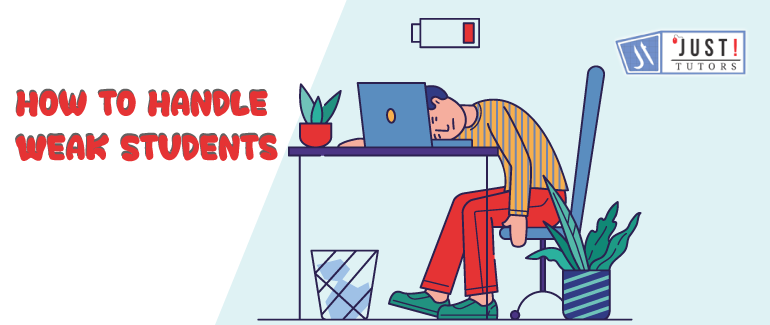As an educator, you will come across a variety of students. In due course, you should realize that every student is unique and has a unique way to comprehend things around him. You will teach some excellent students who are creative and can be called gifted children. However, you will also meet students who are facing difficulty on some level or other.
Children have a cognitive mind which is qualitatively different from adults. Hence we can never say that they are not thinkers and cannot produce their thought. Gifted students are intellectually bright, talented and creative. These are their characteristics. But you may not come across such students quite often.
In such cases, you should be able to handle students who have varied intellectual intelligence. Some with high Intelligence Quotient, most of them with average IQ level and some have below-average IQ. As a facilitator one needs to be prepared mentally so that he can cater to the need of every child in his classroom.
In the case of bright students, you can give them higher-order thinking questions that will assist them to attain mastery in a given subject. But when it comes to handling weak students, how do you cater to their needs? Here are a few ways through which you can handle weak students to whom you should pay attention.
6 Best Way Handle Weak Students
#1. Detect The Cause
It becomes vital to understand the reason behind his weakness. A student’s performance in class is based on the interplay of heredity and environment. A child is never considered to be dull innately. As an educator, you need to be aware of his social and cultural surroundings. Since heredity is also a factor of weak performance you should go ahead and take the extra effort to study the student’s heredity and environment and assist accordingly.
#2. Inspire and Boost Confidence
A weak student lacks confidence. The first thing that one should do as an educator is show faith in him. A teacher’s encouragement can do wonders for the student. A student will achieve his goals when his teachers boost his confidence and inspire him to work hard.
#3. Avoid Pointing Out Mistakes
You are already aware of the fact that your student isn’t able to cope up with academics. In such cases, when you are in the process of helping him, you can try and avoid pointing out the mistakes he makes while doing his homework, classwork or anything related to academics. Constant supervision will directly affect his confidence which may prove to be a hindrance to his growth and development.
#4. Recognize The Learning Style
A student. not being able to focus on his work or is constantly underperforming can be because of his learning style. His approach to learning may be different which directly affects his performance. As a facilitator, you should identify his learning style and the approach your student is taking towards his academic goals. If you find out that he is not dedicating the right amount of time to his studies or the ways through which he looks forward to learning is just through rote memorization then you can accordingly rectify his learning style and work towards his improvement.
Read More Tips:
How to Handle Child Anger – 12 Best Ways
How to give your Children effective feedback?
How to Explain Self Discipline to a Child?
How Do You Teach Small Children To Be Responsible?
How to Speak Confidently In Public- A Guide
#5. Give Ample Opportunities
Give ample opportunities to the weak student to be able to make mistakes. Create activities and encourage hands-on learning rather than rote memorization to help your student construct his knowledge towards a particular subject or topic. Learning by doing is one the most effective ways through which you can aid your weak student. A teacher must never run out of patience with such students. Remember it to be a gradual process.
#6. Assessments
After a certain amount of time, you need to assess your student’s progress. You can take a summative assessment to understand and review his progress and performance. If he performs well in a particular topic, then you can move ahead with the next one. If not, then you can conduct a diagnostic test and continue with remedial teaching and provide more time to your student to construct, learn and improve himself.
As an educator, you must be able to deal with all types of students and cater to their individual needs and requirements. Most of them will be able to progress positively with a little extra effort from your side.
CBSE Free MCQ and Online Tests for class 1 to 10:
- https://www.justtutors.com/test-your-knowledge/cbse-class-10-science
- https://www.justtutors.com/test-your-knowledge/cbse-class-9-science
- https://www.justtutors.com/test-your-knowledge/cbse-class-8-science
- https://www.justtutors.com/test-your-knowledge/cbse-class-8-science
- https://www.justtutors.com/test-your-knowledge/cbse-class-7-science
- https://www.justtutors.com/test-your-knowledge/cbse-class-6-science
- https://www.justtutors.com/test-your-knowledge/cbse-class-5-evs
- https://www.justtutors.com/test-your-knowledge/cbse-class-4-evs
- https://www.justtutors.com/test-your-knowledge/cbse-class-4-evs
- https://www.justtutors.com/test-your-knowledge/cbse-class-3-evs
- https://www.justtutors.com/test-your-knowledge/cbse-class-2-evs
- https://www.justtutors.com/test-your-knowledge/cbse-class-2-evs
- https://www.justtutors.com/test-your-knowledge/cbse-class-1-evs

